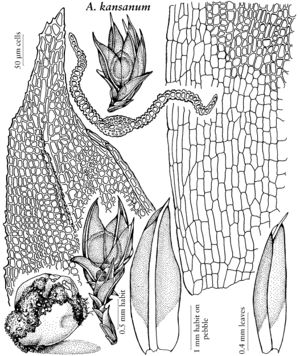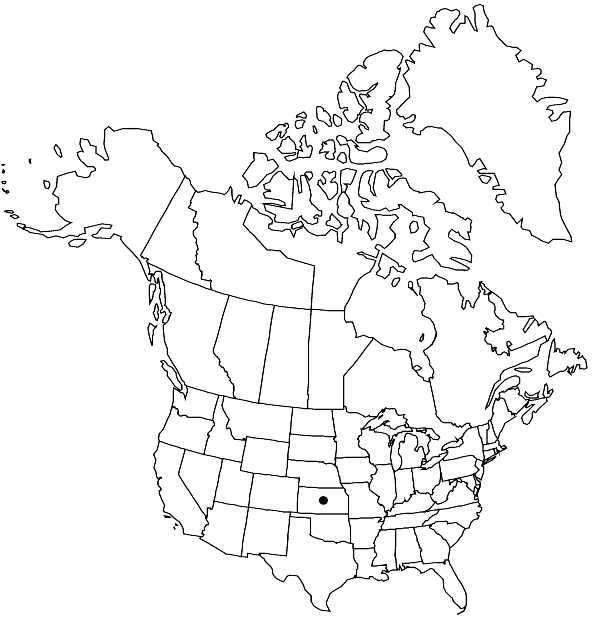Difference between revisions of "Aschisma kansanum"
Torreya 15: 63. 1915,.
Treatment appears in FNA Volume 27. Treatment on page 519.
FNA>Volume Importer |
imported>Volume Importer |
||
| (2 intermediate revisions by 2 users not shown) | |||
| Line 46: | Line 46: | ||
|publication year= | |publication year= | ||
|special status= | |special status= | ||
| − | |source xml=https:// | + | |source xml=https://bitbucket.org/aafc-mbb/fna-data-curation/src/2e0870ddd59836b60bcf96646a41e87ea5a5943a/coarse_grained_fna_xml/V27/V27_746.xml |
|subfamily=Pottiaceae subfam. Trichostomoideae | |subfamily=Pottiaceae subfam. Trichostomoideae | ||
|genus=Aschisma | |genus=Aschisma | ||
Latest revision as of 22:28, 5 November 2020
Protonema persistent as a thick green adherent felt. Leaves with strongly bordered and serrulate margins, distal laminal cell strongly bulging, papillae centered over lumens, mucro strongly denticulate. Capsule exothecial cells rectangular, 4–5:1, mostly ca. 13–18 µm wide. Spores 18–20 µm, weakly ornamented.
Phenology: Capsules mature Apr.
Habitat: Usually under translucent rocks in exposed situations
Elevation: moderate elevations
Discussion
Of conservation concern.
Aschisma kansanum is endemic to the United States, being restricted to High Plains grassland (Gary L. Smith 1990) in three counties in west-central Kansas. Its persistent protonema and habitat are distinctive. This tiny, very rare species is threatened by over-collecting and grazing.
Selected References
None.
Lower Taxa
None.

